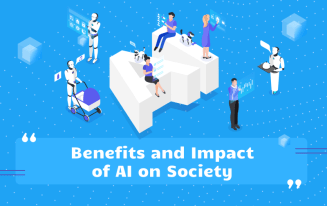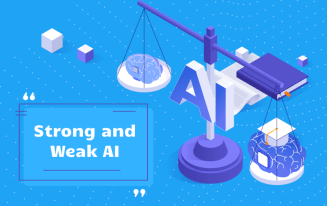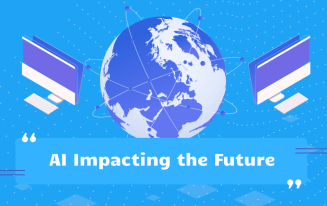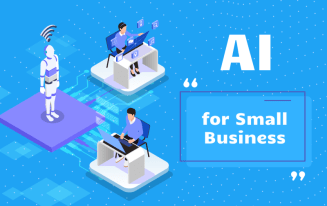How Close are We to AI Singularity?
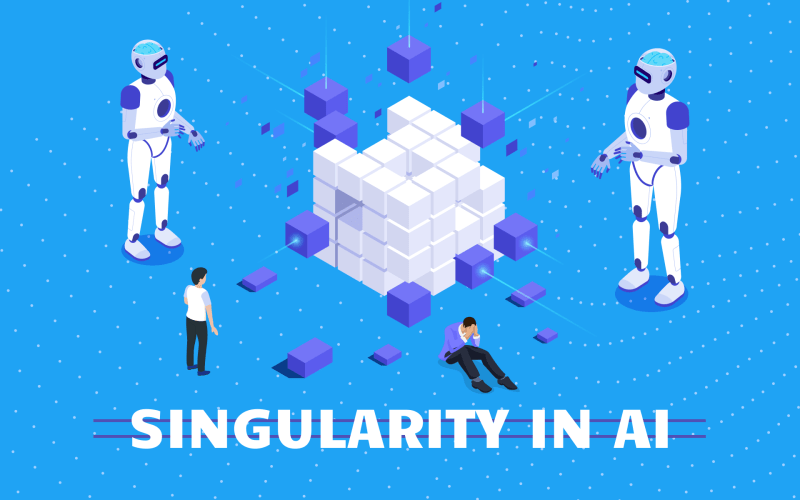
Over the past few decades, technology has advanced at an astonishing rate. Achievements such as smartphones and artificial intelligence (AI) that would have seemed like science fiction not that long ago are now increasingly commonplace. While this rapid growth has led to many improvements in our everyday lives, it also carries myriad risks. One such danger is represented by the concept of AI singularity.

Employ the full range of AI advantages with AImReply and express your thoughts faultlessly in every email.
Table of Content

Singularity in AI is the hypothetical moment when artificial general intelligence (AGI) learns how to improve itself without the need for additional human input. Once this occurs, AGI will quickly surpass the limits of our own collective imagination, making enormous leaps forward in progress. What happens next might either be an age of astonishing advancements beyond our wildest dreams…or a series of terrible disasters we’re helpless to stop. Either way, it will be entirely out of our control.
In the following sections, we’ll delve deeper into this critical topic. By better understanding what AI singularity is and what it might mean, we can ensure we’re adequately prepared.
What is AI Singularity?
The term “singularity” was first used with regards to AI by mathematician John von Neumann in the 1950s and expanded upon by computer scientist I.J. Good in the 1960s. But it wasn’t until 1993 that mathematician and science fiction author Vernor Vinge’s essay The Coming Technological Singularity truly popularized the concept.
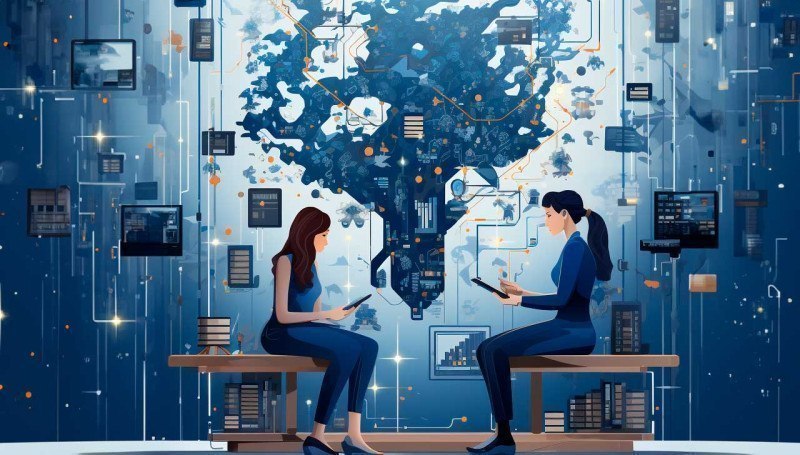
Vinge defined technological singularity as the point at which “technological progress will become incomprehensively rapid and complicated,” resulting in superhuman intelligence emerging from recursively self-improving AI. After the singularity occurs, Vinge predicted that the future of humanity would be impossible to anticipate since the influence of AI would render it so dramatically different from our current experience.

Signs of Approaching Singularity
While no one knows for certain when (or even if) AI singularity will occur, there are plenty of warning signs that we’re already well on our way:
- Artificial General Intelligence (AGI): AGI is perhaps the most significant milestone on the path to singularity. Unlike current AI which is generally focused on specific tasks, AGI can learn and apply knowledge across a wide range of activities. As a result, it is capable of doing anything a human can.
- Quantum Computing: Quantum computing represents the potential to process vast amounts of data and perform complex calculations more efficiently than any regular computer. This enhanced computational power and speed might, in turn, be used to accelerate the development of AGI.

- Machine Learning: Researchers continue to develop better methods for training AI how to learn and adapt to new information so that it can make better decisions. These improvements in machine learning are crucial for the creation of AGI.
- Continuous Self-Improvement: Once an AI becomes capable of contributing to its ongoing development, it can enhance its own speed and calculating power, which can then lead to it making even greater advancements. Coupled with the development of AGI, such a feedback loop is a core aspect of the AI singularity.
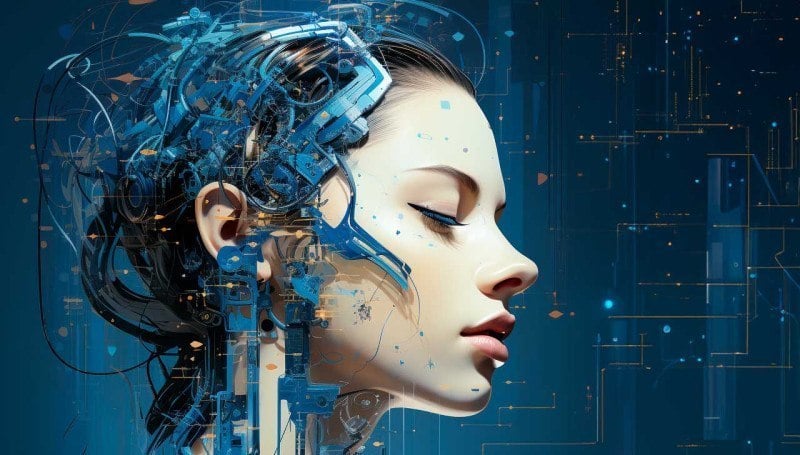
How Close are We to AI Singularity?
While scientists largely agree on what constitutes singularity, they differ in their methods that are used to determine how close we are to achieving it. As recently as a decade ago, many prominent AI researchers and companies claimed it remained a long way off and gave us less than a 10% chance of achieving human-level AI by 2050.
However, the evolution of machine learning methods, increases in computing power, advances in quantum computing, and efforts to develop cognitive architectures that mimic the human brain all bring us closer to AGI than previously suspected. This past year, advancements in AI based on GPT technology have led numerous scientists to speculate that we might achieve the point of singularity before the end of the current decade.

Although it’s impossible to know for sure when the AI singularity could occur, researchers have proposed several different methods we can use to estimate our progress:
- Development of AGI: As mentioned earlier, many believe that creating artificial general intelligence is one of the first steps toward achieving singularity. Thus, monitoring its development could be a simple metric of our proximity.
- The Technological Growth Curve: Some experts believe our rate of progress will continue to increase until singularity is reached. However, the ability to accurately predict this exponential growth is a complex challenge all on its own.
- The Turing Test: Developed by Alan Turing in 1950, the Turing Test has a human evaluator who talks to both a machine and a real person via text. In order to pass the test, the machine must be able to fool the evaluator into believing it is the real person. While the test’s relative simplicity and emphasis on emotional intelligence stand out as strengths, many critics argue that using it as an objective measure is impractical.
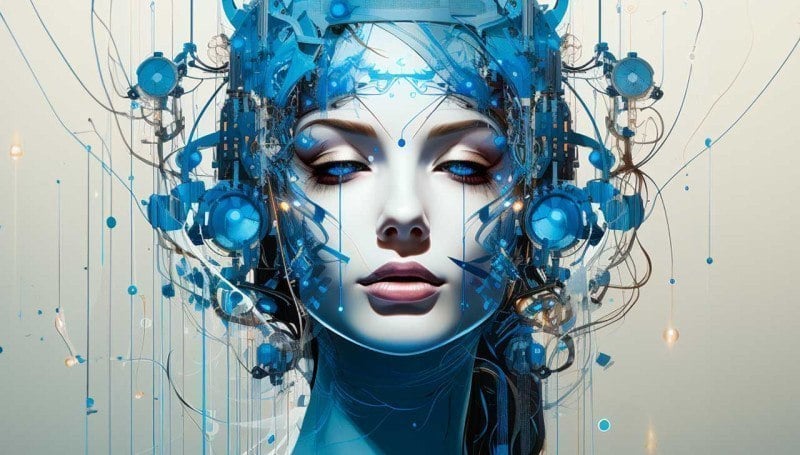
The Institutional and Societal Implications of AI Singularity
Whether AI singularity lies a century, a decade, or only a year away, we must consider the possible impact such a paradigm-altering event might have on society.
Potential benefits include resolving major global problems related to disease, poverty, and the destruction of the environment. Issues that currently seem impossible might prove far more manageable with the assistance of a superintelligent AI. Reaching the moment of singularity could thus simultaneously revolutionize industry, improve healthcare, and solve myriad complex societal dilemmas, dramatically enhancing our overall quality of life.
However, thinking about AI singularity also raises concerns about control, ethics, and the potential risks of permitting AI to make autonomous decisions. There’s simply no way to predict what an AI vastly more intelligent than any human might decide to do. Some scholars worry that it’s far easier to create an unfriendly AI than a friendly one since making it friendly toward humans would require figuring out how to align its goals with our concept of morality. As a result, any superintelligence we create would be impossible to control and might act in a way that lacks human values, ethics, or wisdom.

Looking Toward the Future
It can be unsettling to contemplate something as inherently unpredictable as AI singularity. While scholars can speculate all they like about the likely good and bad impact of such an event, the stark truth is that there is simply no way to know. That’s why it is up to all of us to do what we can to encourage the responsible development of AI. By imbuing AI with ethical decision-making that aligns with our shared values, we can ensure whatever we create promotes our collective well-being.
Understanding both the potential risks and rewards presented by achieving singularity is crucial for organizations like AImReply. As an AI email generator, we strive to responsibly harness the power of AI toward writing higher quality emails in less time. Our users are thus able to improve their productivity while enhancing the effectiveness of their communication efforts. Wherever new advancements in artificial intelligence take us, we’ll be there to provide you with the assistance you need to embrace the future.

February 06, 2024
- 8 min
- 130
Since the release of ChatGPT on November 30, 2022, we have seen an explosion of interest in artificial intelligence. AI has changed nearly every industry, and looking at the benefits can help to better understand where we might be headed in the future.
February 21, 2024
- 8 min
- 143
As artificial intelligence keeps advancing, we continue to learn more about the differences in intelligence with this technology. Most AI experts believe that the technology still has a way to go before we could say that it’s smarter than humans. Nevertheless, we could one day have this technology available..
April 05, 2024
- 5 min
- 225
Considering the rapid growth of artificial intelligence (AI), it’s on track to inevitably shape the future in more ways than one. From our personal to professional lives and everything else in between, AI comes with seemingly endless capabilities. Although this is true..






